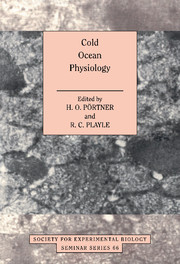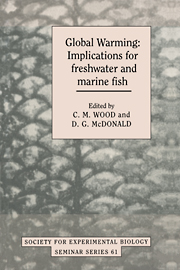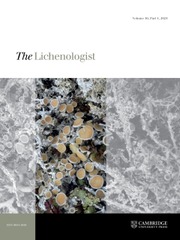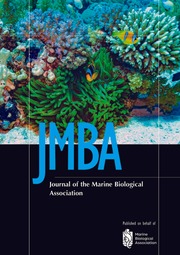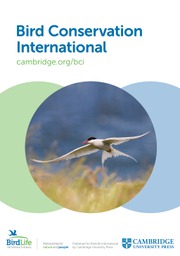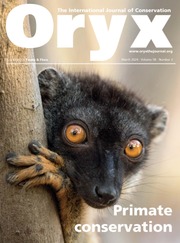Cold Ocean Physiology
From a human viewpoint, the cold waters of deep sea and polar marine regions present an inhospitable and harsh environment for life. The study of organisms which have exploited this seemingly hostile ecological niche has revealed intriguing physiological adaptations. This volume summarizes the information on the adaptations exhibited by representatives of the main groups of polar animals, including marine invertebrates, fish, mammals and birds, at scales ranging from the whole organism through to the underlying molecular adaptational mechanisms. Unique in its breadth of coverage, this volume will provide an important resource for all those concerned specifically with how animals have adapted to life in extreme conditions, as well as being of general interest to all marine biologists.
- Comprehensive: includes marine invertebrates, mammals and birds, as well as fish
- Considers adaptation to cold environments at a range of scales, from the whole organism through to the underlying molecular mechanisms
- Synthesises the most important findings in a field in which the volume of information continues to expand rapidly
Reviews & endorsements
'It is a volume to dip into repeatedly … this well bound and illustrated book should be on the shelves of all institutions where aquatic biology is taught or researched.' John Davenport, Journal of Experimental Marine Biology and Ecology
'… an excellent guide for final-year undergraduates, postgraduates or anyone interested in advanced polar biology.' New Scientist
'… a volume well worth the attention of all comparative physiologists concerned with the effects of low temperatures'. John A. MacDonald, Antarctic Science
Product details
April 1998Hardback
9780521580786
518 pages
229 × 152 × 29 mm
0.955kg
81 b/w illus. 38 tables
Available
Table of Contents
- List of contributors
- Preface
- Part I. General Concepts:
- 1. Temperature and energetics: an introduction to cold ocean physiology A. Clarke
- Part II. Compensatory Adaptations in Cold Ocean Environments:
- 2. Adaptation to cold and depth: contrasts between polar and deep-sea animals G. N. Somero
- 3. Temperature and growth rates as modulators of the metabolic capacities of fish muscle H. Guderley
- 4. Energetic aspects of cold adaptation: critical temperatures in metabolic, ionic and acid-base regulation? H. O. Pörtner, I. Hardewig, F. J. Sartoris and P. L. M. van Dijk
- 5. Physiological and evolutionary aspects of myoglobin expression in the haemoglobinless Antarctic icefishes B. D. Sidell and M. E. Vayda
- 6. Oxygen transport systems in extreme environments: multiplicity and structure-function relationship in haemoglobins of Antarctic fish G. di Prisco, M. Tamburrini and R. D´Avino
- 7. Membrane lipid and protein adaptations in Antarctic fish C. Storelli, R. Acierno and M. Maffia
- 8. Kinetics of enzymes in cold-stenothermal invertebrates R. A. H. Vetter and F. Buchholz
- 9. Effects of low temperature on prooxidant processes and antioxidant defence systems in marine organisms A. Viarengo, D. Abele-Oeschger and B. Burlando
- Part III. Exploitative Adaptations:
- 10. New insights into fish antifreeze proteins: physiological significance and molecular regulation G. L. Fletcher, S. V. Goddard, P. L. Davies, Z. Gong, K. V. Ewart and C. L. Hew
- 11. Antifreeze glycopeptides and peptides in the freezing avoidance of Weddell Sea fishes: its relation to mode of life, depth distribution and evolution A. P. A. Wöhrmann
- Part IV. Integrative Approaches:
- 12. Effects of environmental and experimental stress on Antarctic fish S. Egginton and W. Davison
- 13. Fish cardio-circulatory function in the cold M. Axelsson, C. Agnisola, S. Nilsson and B. Tota
- 14. Feeding, metabolism and metabolic scope in Antarctic marine ectotherms L. S. Peck
- 15. Evolution and adaptation of the diving response: phocids and otariids P. W. Hochachka and P. D. Mottishaw
- 16. The physiology of polar birds R. M. Bevan, C. M. Bishop, and P. J. Butler
- Part V. Applied Approaches:
- 17. Physiological ecology in cold ocean fisheries: a case study in Atlantic cod R. G. Boutilier
- Index.

